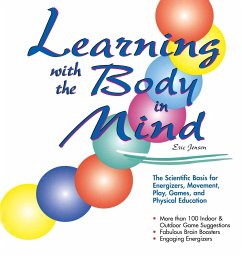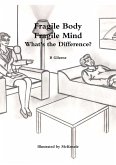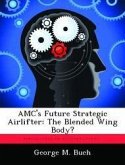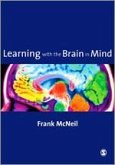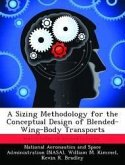Eric Jensen
Learning With the Body in Mind
The Scientific Basis for Energizers, Movement, Play, Games, and Physical Education
Eric Jensen
Learning With the Body in Mind
The Scientific Basis for Energizers, Movement, Play, Games, and Physical Education
- Broschiertes Buch
- Merkliste
- Auf die Merkliste
- Bewerten Bewerten
- Teilen
- Produkt teilen
- Produkterinnerung
- Produkterinnerung
Formerly a publication of The Brain Store Capitalize on your students' high energy using these research-based movement activities to increase intrinsic motivation, improve attitudes, strengthen memory, and boost achievement in your classroom.
Andere Kunden interessierten sich auch für
![Symmetrical Education or The Importance of Just Proportion in Mind and Body Symmetrical Education or The Importance of Just Proportion in Mind and Body]() William Cave ThomasSymmetrical Education or The Importance of Just Proportion in Mind and Body21,99 €
William Cave ThomasSymmetrical Education or The Importance of Just Proportion in Mind and Body21,99 €![Fragile Body Fragile Mind Fragile Body Fragile Mind]() B. GilzeneFragile Body Fragile Mind12,99 €
B. GilzeneFragile Body Fragile Mind12,99 €![Experimental Study of the Subsonic Aerodynamics of a Blended Wing Body Air Vehicle with a Focus on Rapid Technology Assessment Experimental Study of the Subsonic Aerodynamics of a Blended Wing Body Air Vehicle with a Focus on Rapid Technology Assessment]() David A. GebbieExperimental Study of the Subsonic Aerodynamics of a Blended Wing Body Air Vehicle with a Focus on Rapid Technology Assessment64,99 €
David A. GebbieExperimental Study of the Subsonic Aerodynamics of a Blended Wing Body Air Vehicle with a Focus on Rapid Technology Assessment64,99 €![AMC's Future Strategic Airlifter: The Blended Wing Body? AMC's Future Strategic Airlifter: The Blended Wing Body?]() George M. BuchAMC's Future Strategic Airlifter: The Blended Wing Body?63,99 €
George M. BuchAMC's Future Strategic Airlifter: The Blended Wing Body?63,99 €![Malignants in the Body Politic: Redefining War Through Metaphor Malignants in the Body Politic: Redefining War Through Metaphor]() Douglas R. StickleMalignants in the Body Politic: Redefining War Through Metaphor64,99 €
Douglas R. StickleMalignants in the Body Politic: Redefining War Through Metaphor64,99 €![Learning with the Brain in Mind Learning with the Brain in Mind]() Frank McNeilLearning with the Brain in Mind63,99 €
Frank McNeilLearning with the Brain in Mind63,99 €![A Sizing Methodology for the Conceptual Design of Blended-Wing-Body Transports A Sizing Methodology for the Conceptual Design of Blended-Wing-Body Transports]() William M. KimmelA Sizing Methodology for the Conceptual Design of Blended-Wing-Body Transports63,99 €
William M. KimmelA Sizing Methodology for the Conceptual Design of Blended-Wing-Body Transports63,99 €-
-
-
Formerly a publication of The Brain Store Capitalize on your students' high energy using these research-based movement activities to increase intrinsic motivation, improve attitudes, strengthen memory, and boost achievement in your classroom.
Hinweis: Dieser Artikel kann nur an eine deutsche Lieferadresse ausgeliefert werden.
Hinweis: Dieser Artikel kann nur an eine deutsche Lieferadresse ausgeliefert werden.
Produktdetails
- Produktdetails
- Verlag: Corwin
- Seitenzahl: 136
- Erscheinungstermin: 16. Februar 2000
- Englisch
- Abmessung: 229mm x 216mm x 8mm
- Gewicht: 297g
- ISBN-13: 9781890460075
- ISBN-10: 1890460079
- Artikelnr.: 22092664
- Herstellerkennzeichnung
- Libri GmbH
- Europaallee 1
- 36244 Bad Hersfeld
- gpsr@libri.de
- Verlag: Corwin
- Seitenzahl: 136
- Erscheinungstermin: 16. Februar 2000
- Englisch
- Abmessung: 229mm x 216mm x 8mm
- Gewicht: 297g
- ISBN-13: 9781890460075
- ISBN-10: 1890460079
- Artikelnr.: 22092664
- Herstellerkennzeichnung
- Libri GmbH
- Europaallee 1
- 36244 Bad Hersfeld
- gpsr@libri.de
Eric Jensen is a former teacher who grew up in San Diego, California. With a Ph.D. in Human Development, he synthesizes brain research and develops practical applications for educators. He is listed among the top 30 educators in the world at GlobalGurus.org. Dr. Jensen has authored over 30 books, including Different Brains, Different Learners, Teaching with the Brain in Mind, Turnaround Tools for the Teenage Brain, Teaching with Poverty in Mind, Engaging Students with Poverty in Mind, and Poor Students Rich Students. Dr. Jensen co-founded an academic enrichment program held in 14 countries with over 75,000 graduates. He is a member of the invitation-only Society for Neuroscience and the President's Club at Salk Institute of Biological Studies. Dr. Jensen provides conference speaking and trainings that can be found at jensenlearning.com. Or, contact: eric@jensenlearning.com.
Introduction A Note About the Research 1. The Nature of Implicit Learning To Understand It Is to Love It Ten Reasons for Increasing Implict Learning More Ways to Remember Take the Long View of Play 2. The Moving Brain Movement: The Choreography of Systems How Our Sytems Are Activated Our Key Biological Systems Interaction Patterns 3. Indoor Games What the Science Says "Chair-Man" of the Bored Perceptual-Motor/Cognition Enhancement Movement
s Impact on Learning Waking Up the Brain Sensory Integration Emotional Expression Change of Body, Change of Mind The Binding Solution Settling Time Too Much, Too Fast, Won
t Last Meaning Making Is State-Dependent Guidelines for Play Indoor Movement Ideas 4. Performing Arts What the Science Says Creativity Social Skills Enchancement Motivation Perceptual-Motor Enhancement Self-Discipline Cognition Emotional Intelligence Self-Esteem Performance Suggstions You Can Use Today 5. Outdoor Play and Recess What the Science Says Developing Social Skills Mind-Body State Changes Self-Esteem Spinning Is Good for the Brain Stress Reduction When "Not Learning" Is Important Cognition When Recess Isn
t Working Healthy Participation Get Outside Sick Buildings, Sick Learners Motoring Up Motivation Playful Ideas You Can Use Today 6. Exercise and Fitness What the Science Says New Cells, Better Brain Self-Esteem More Efficient Learning Stress and Aggression Grades and Test Scores Perceptual-Motor Skills Healthy Heart, Healthy Body Motivation Improved Discipline Practical Exercises You Can Use Today 7. Getting a Move On: Policy Implications A Note to Policy Makers A Note to Saff Developers Where to Start Quick Guide: 65 Alll-Time Best Learning Activators Best Indoor Games Best Outdoor Games Brainy Energizers Focusing the Brain Appendix Bibliography Brain-Based Resources About the Author Index
s Impact on Learning Waking Up the Brain Sensory Integration Emotional Expression Change of Body, Change of Mind The Binding Solution Settling Time Too Much, Too Fast, Won
t Last Meaning Making Is State-Dependent Guidelines for Play Indoor Movement Ideas 4. Performing Arts What the Science Says Creativity Social Skills Enchancement Motivation Perceptual-Motor Enhancement Self-Discipline Cognition Emotional Intelligence Self-Esteem Performance Suggstions You Can Use Today 5. Outdoor Play and Recess What the Science Says Developing Social Skills Mind-Body State Changes Self-Esteem Spinning Is Good for the Brain Stress Reduction When "Not Learning" Is Important Cognition When Recess Isn
t Working Healthy Participation Get Outside Sick Buildings, Sick Learners Motoring Up Motivation Playful Ideas You Can Use Today 6. Exercise and Fitness What the Science Says New Cells, Better Brain Self-Esteem More Efficient Learning Stress and Aggression Grades and Test Scores Perceptual-Motor Skills Healthy Heart, Healthy Body Motivation Improved Discipline Practical Exercises You Can Use Today 7. Getting a Move On: Policy Implications A Note to Policy Makers A Note to Saff Developers Where to Start Quick Guide: 65 Alll-Time Best Learning Activators Best Indoor Games Best Outdoor Games Brainy Energizers Focusing the Brain Appendix Bibliography Brain-Based Resources About the Author Index
Introduction A Note About the Research 1. The Nature of Implicit Learning To Understand It Is to Love It Ten Reasons for Increasing Implict Learning More Ways to Remember Take the Long View of Play 2. The Moving Brain Movement: The Choreography of Systems How Our Sytems Are Activated Our Key Biological Systems Interaction Patterns 3. Indoor Games What the Science Says "Chair-Man" of the Bored Perceptual-Motor/Cognition Enhancement Movement
s Impact on Learning Waking Up the Brain Sensory Integration Emotional Expression Change of Body, Change of Mind The Binding Solution Settling Time Too Much, Too Fast, Won
t Last Meaning Making Is State-Dependent Guidelines for Play Indoor Movement Ideas 4. Performing Arts What the Science Says Creativity Social Skills Enchancement Motivation Perceptual-Motor Enhancement Self-Discipline Cognition Emotional Intelligence Self-Esteem Performance Suggstions You Can Use Today 5. Outdoor Play and Recess What the Science Says Developing Social Skills Mind-Body State Changes Self-Esteem Spinning Is Good for the Brain Stress Reduction When "Not Learning" Is Important Cognition When Recess Isn
t Working Healthy Participation Get Outside Sick Buildings, Sick Learners Motoring Up Motivation Playful Ideas You Can Use Today 6. Exercise and Fitness What the Science Says New Cells, Better Brain Self-Esteem More Efficient Learning Stress and Aggression Grades and Test Scores Perceptual-Motor Skills Healthy Heart, Healthy Body Motivation Improved Discipline Practical Exercises You Can Use Today 7. Getting a Move On: Policy Implications A Note to Policy Makers A Note to Saff Developers Where to Start Quick Guide: 65 Alll-Time Best Learning Activators Best Indoor Games Best Outdoor Games Brainy Energizers Focusing the Brain Appendix Bibliography Brain-Based Resources About the Author Index
s Impact on Learning Waking Up the Brain Sensory Integration Emotional Expression Change of Body, Change of Mind The Binding Solution Settling Time Too Much, Too Fast, Won
t Last Meaning Making Is State-Dependent Guidelines for Play Indoor Movement Ideas 4. Performing Arts What the Science Says Creativity Social Skills Enchancement Motivation Perceptual-Motor Enhancement Self-Discipline Cognition Emotional Intelligence Self-Esteem Performance Suggstions You Can Use Today 5. Outdoor Play and Recess What the Science Says Developing Social Skills Mind-Body State Changes Self-Esteem Spinning Is Good for the Brain Stress Reduction When "Not Learning" Is Important Cognition When Recess Isn
t Working Healthy Participation Get Outside Sick Buildings, Sick Learners Motoring Up Motivation Playful Ideas You Can Use Today 6. Exercise and Fitness What the Science Says New Cells, Better Brain Self-Esteem More Efficient Learning Stress and Aggression Grades and Test Scores Perceptual-Motor Skills Healthy Heart, Healthy Body Motivation Improved Discipline Practical Exercises You Can Use Today 7. Getting a Move On: Policy Implications A Note to Policy Makers A Note to Saff Developers Where to Start Quick Guide: 65 Alll-Time Best Learning Activators Best Indoor Games Best Outdoor Games Brainy Energizers Focusing the Brain Appendix Bibliography Brain-Based Resources About the Author Index

